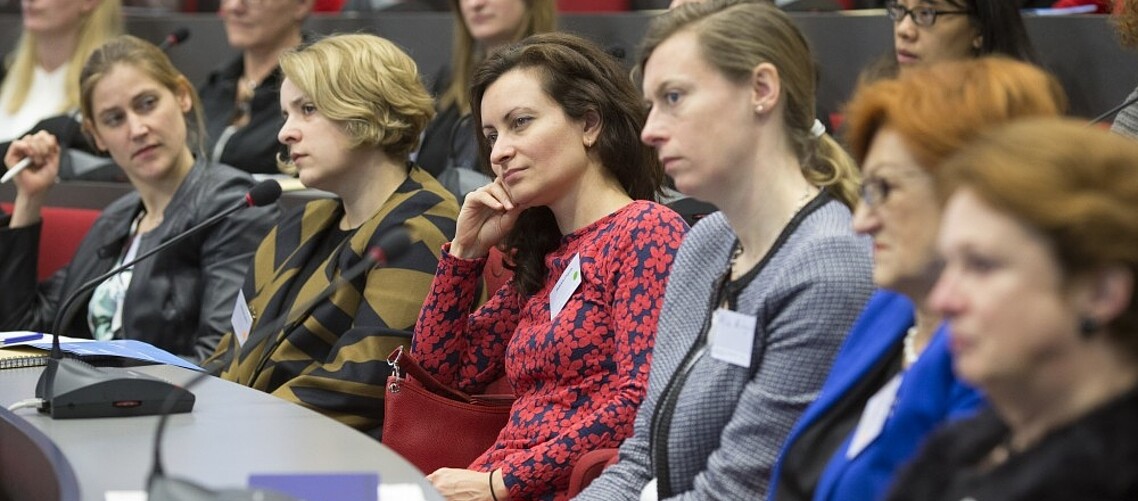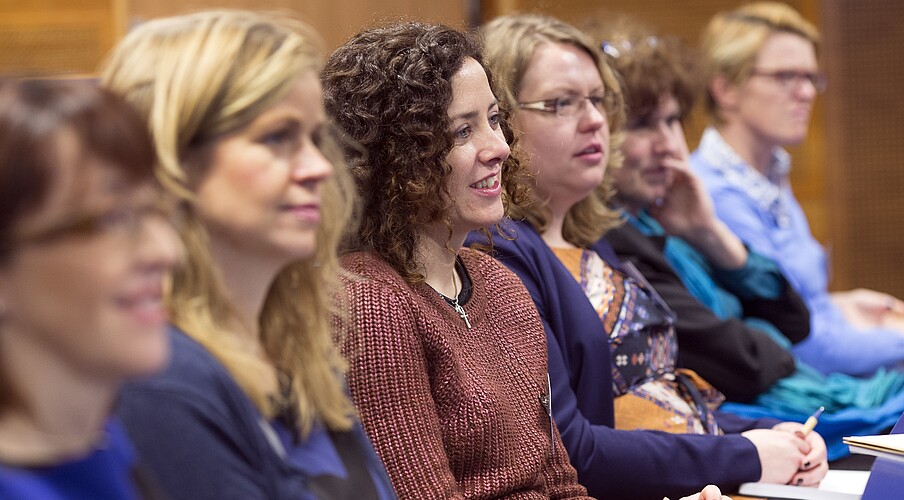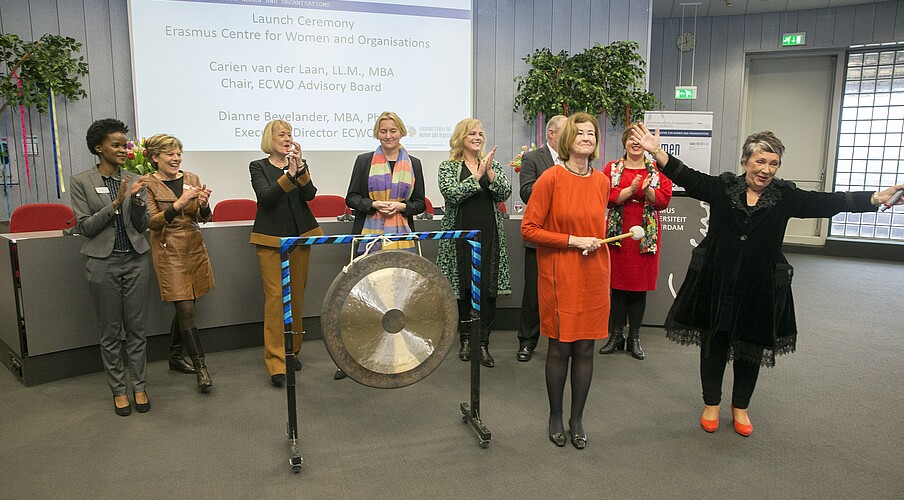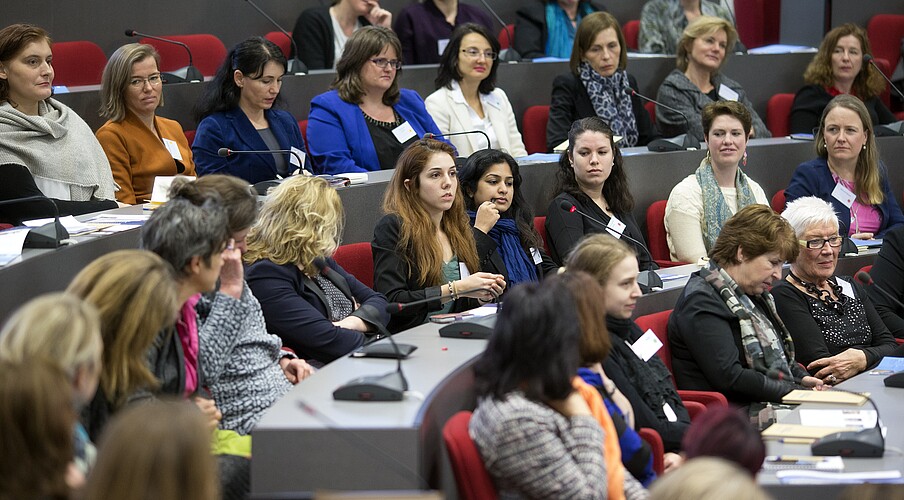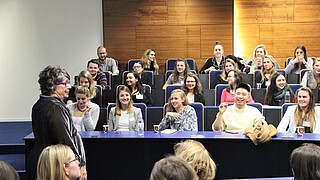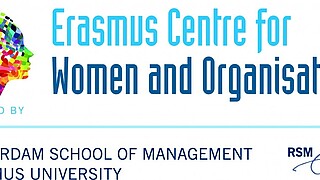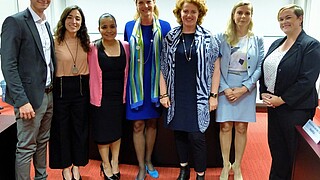Launching the sell-out The 8th Summit: Women's Ascent of Organisations, Hein Knaapen, chief HR officer of ING Bank NV told the audience about his experience as a gay man confronting negative stereotypes in the corporate world. “When you are part of a minority there is an unconscious bias, whether you are gay, black or a woman in a senior role,” he said. “If we want to change things, we must keep making an impact.”
The capacity audience took part in the plenary sessions and chose one of five parallel workshops hosted by specialists in female leadership.
‘Play to your strengths’
Pauline van der Meer Mohr, independent non-executive director and former president of Erasmus University Rotterdam, shared her journey as a female leader and the first female on the management board of Shell. “Choose employers who support women in leadership roles and choose organisation's whose values align with your own,” she advised audience members. “Leadership is complex. Much of your legacy comes down to how well you allocate resources, and how well you play to your strengths.”
With her experience in senior management positions at various multinational corporations, Jacqueline Tammenoms Bakker, said that leaders must make the shift from 'doer' to 'enabler'.
Gender bias
She added that persistence was another key to success; women leaders should create teams that include qualities they don't have themselves. “Develop self-awareness, set an example by being curious about what other people think, build relationships, and look for inspiration,” said the non-executive director of CNH Industrial, member of the supervisory board of TomTom, Unibail-Rodamco and Groupe Wendel, and vice-chair of the RSM Advisory Board.
“What strikes me is how much gender bias is still an issue,” said entrepreneur Fiona Ronquest-Ross, a conference participant. “I like that we are being called to action: men are not going to fight our battles for us.”
Have the feared conversation
Award-winning entrepreneur Marlies Dekkers spoke to her workshop audience about how women can recognise their strengths, eliminate negative thoughts and embrace their creativity. As fashion designer with a multinational corporation, Dekkers urged women to make their choices not based on gender stereotypes but on personal choices, what she refers to as 'modern-day feminism'.
International facilitator, executive coach and retreat leader David Bond focused on substantive leadership change, and said women must find the courage to have the conversation that they most fear. He said that becoming a significant voice on a board or in an organisation required learning and practice in how to have courageous conversations.
Prof. Karen Stephenson, a Harvard scholar, quantum chemist and anthropologist, shared her research about how to use the power of ‘virtual connection’ of social media for leadership to access innovation, expand and improve connections, and as a governance tool.
Better endurance
Former journalist Rebecca Stephens, the first British woman to reach the summit of Mount Everest as well as the seven summits, compared climbing mountains with scaling the corporate ladder, and noted the difference between reality and perception. “Men are clearly at an advantage in terms of strength, but as a woman I discovered I had better endurance and less altitude sickness. I had other strengths to bring to the table.” To be successful in business, Stephens urged women in business to embrace the unique skills they have as leaders rather than emulate male role models.
During her workshop, McKinsey’s expert consultant in the organisation practice Dr Jacqueline Brassey spoke about the role of confidence in attaining success. “There is so much talent out there that’s going to waste,” she said, adding that the lack of confidence is often mistaken for lack of competence. Brassey gave an empowering speech that touched on her own personal journey, and concluded: “Women need to befriend themselves and build their confidence if they are to give the best of themselves.”
Erasmus Centre for Women in Organisations
The Women in Leadership conference quickly sold out when tickets were released. It marked the launch of the Erasmus Centre for Women in Organisations (ECWO), an academic centre dedicated to addressing gender bias. The conference culminated with an inaugural lecture by Dianne Bevelander, confirming her appointment as professor of management with a focus on women in business at RSM.
The full event report of the Women in Leadership Conference can be read here.
